Whether you’re preparing for professional exams, or are a college student studying for your finals, you might be experiencing some anxiety or nervousness about the test. Exam anxiety is common, and something that almost everyone experiences to some degree.
Left unchecked, anxiety about upcoming exams has the potential to become a little overwhelming. It can then interfere with your ability to study properly, or to concentrate during the exam. Read on to find out more about what causes anxiety and what you can do to help manage it so that it doesn’t have a negative impact on your performance.
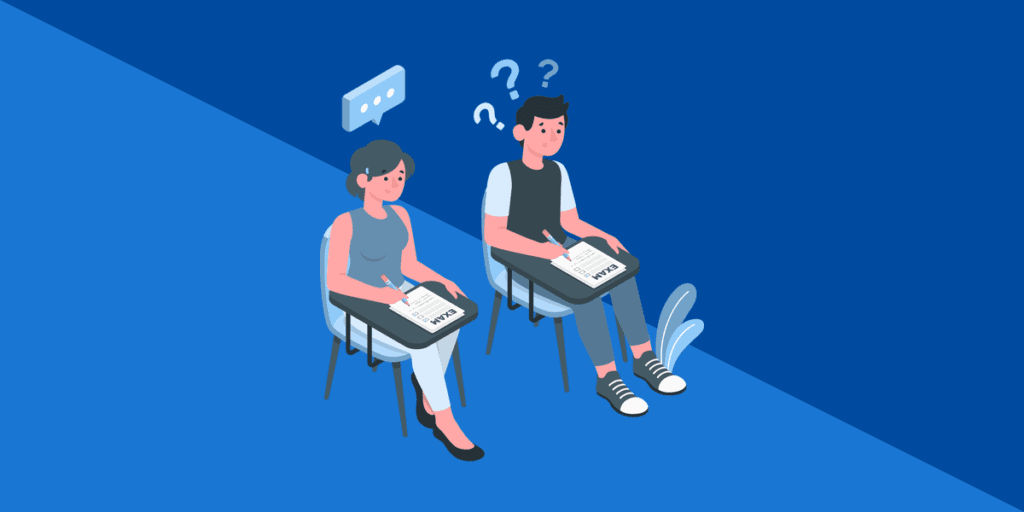
What is exam anxiety?
Exam anxiety is a feeling of worry, nervousness, or fear that can interfere with someone’s ability to do well on an exam.
This type of anxiety is very common and can affect people of all ages. While there are many different causes of exam anxiety, it often arises from a fear of failure or a lack of confidence in one’s abilities.
Why do exams make us feel anxious?
There is no one cause of exam anxiety. It can be caused by a variety of factors, including stress from work, fear of failure, low self-esteem, and perfectionism. Some people may also be more prone to developing exam anxiety due to genetics or past experiences suffering from anxiety.
One of the reasons that exams can make us feel anxious is that there can often be a lot at stake. How well someone does in important exams can be the difference between achieving a top level degree or not, or deciding whether they achieve a professional qualification like the CFA or FRM designation, which in turn can potentially have a significant impact on their career.
With a lot riding on the outcome of some tests, it’s not surprising that they can cause those sitting them to feel anxious or worried about failing, and that high stakes exams have been shown to cause increased anxiety compared to exams with less at stake.
Other causes of anxiety about exams include poor past performance and lack of preparation. If you’ve done badly in exams before, and particularly if you are resitting an exam that you have previously failed, then you may experience increased levels of anxiety the next time you take it.
Likewise, if you believe that you haven’t sufficiently prepared for an exam then it can make you feel anxious that you’re not going to perform very well, and certainly not to your full potential.
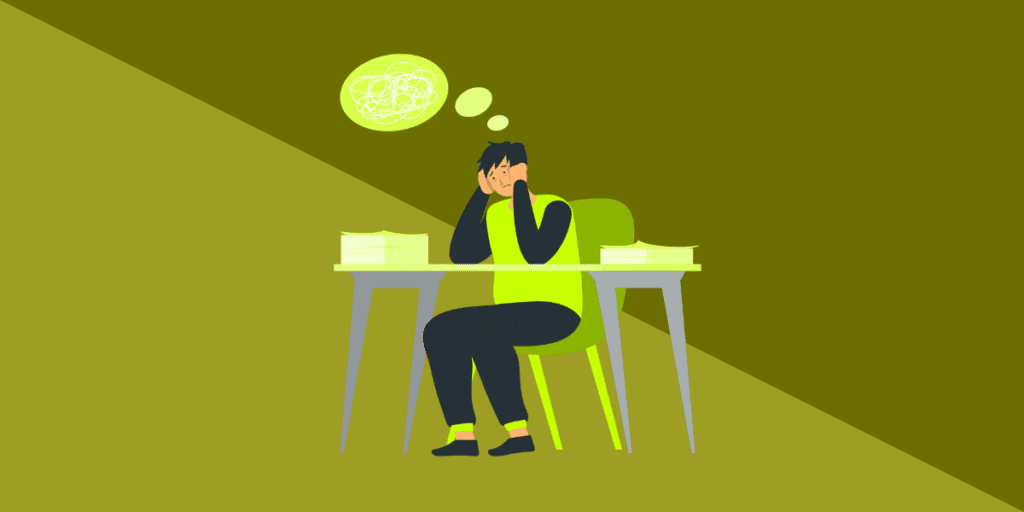
Common signs & symptoms of exam anxiety
Anxiety about exams can display quite a wide and varied range of symptoms. Some of these may be physical, while others may impact how you feel emotionally. Exam anxiety can also result in behavioral symptoms, in which the way you act or behave alters due to feelings of anxiousness.
If you think either you or someone you know is suffering from exam or test anxiety, common symptoms to be aware of include:
- Racing thoughts
- Trouble concentrating
- Nervousness and trembling
- Rapid heartbeat
- Sweating or cold hands
- Shortness of breath or hyperventilation
- Dizziness or lightheadedness
- Upset stomach, nausea, or diarrhea
- Muscle tension or headaches
- Avoiding studying and procrastination
- Dry mouth
- Difficulty sleeping
Emotionally, individuals may feel hopeless, distressed or even angry. They may also experience feelings of worthlessness or frustration with themselves for not studying enough. Cognitively, they may have difficulty remembering information, or see an increase in negative self-talk such as “I’m going to fail”.
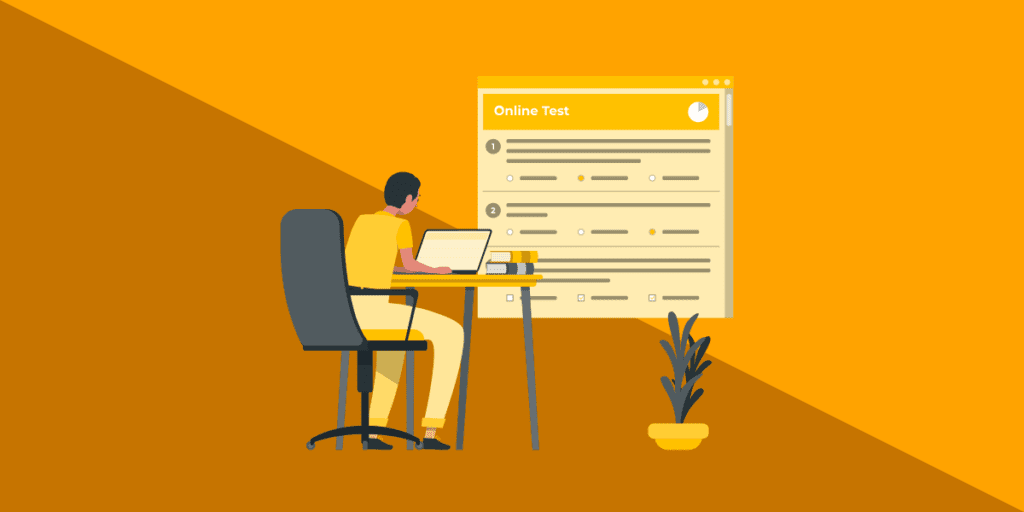
Anxiety before, during & after exams
Exam anxiety doesn’t just happen before exams; it can also occur while taking an exam, as well as once you finish the exam while you await your results. Before an exam, anxiety is most likely to be caused by a fear of failure, and can manifest in a range of symptoms.
During an exam, a person may experience physical symptoms such as sweating or trembling hands. They may also struggle to concentrate and find it difficult to recall information. This, of course, does not help anyone to do their best. It’s worth arming yourself with a few techniques to help calm your anxiety should it strike during an exam.
Post examination, a person may feel relief that the test is over but also worry about how they did. This can lead them to second-guess their answers, and start to doubt how well they did.
Others may experience feelings of guilt or regret for not studying enough, fear of imagined judgment from peers or instructors. Even someone who in reality aced their exam can experience significant anxiety, which can have a real impact both physically and mentally.
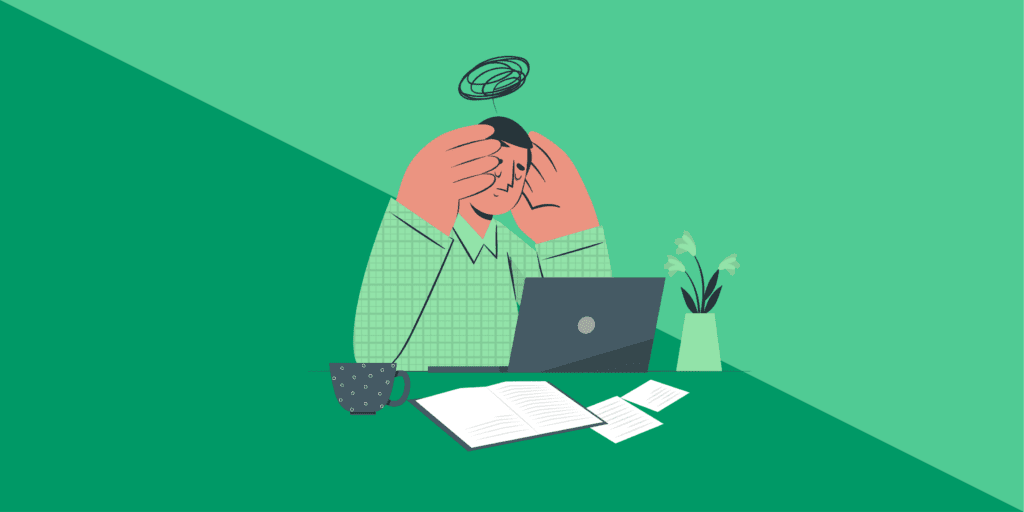
Does anxiety impact exam performance?
Anxiety can have a significant impact on exam performance; it can interfere with our ability to focus, remember information, and make decisions, all of which are necessary to do as well as possible in exams.
The physiological symptoms of anxiety such as increased heart rate and sweating can interfere with concentration and recall of information during exams. It has also been found that students with high levels of test anxiety tend to underestimate their ability to answer questions correctly, overestimate the difficulty of the exam, and engage in other cognitive behavior that can negatively impact their performance.
Higher levels of test-related anxiety are also associated with lower academic achievement due to decreased motivation to study for exams, and anxious students often experience difficulty in properly allocating their time during an exam, which can lead to lower scores as well.
In summary, anxiety can significantly affect exam performance by interfering with concentration and recall of information during tests, reducing motivation to study for exams, increasing perceived difficulty level of the exam, and impairing proper time allocation during the exam.
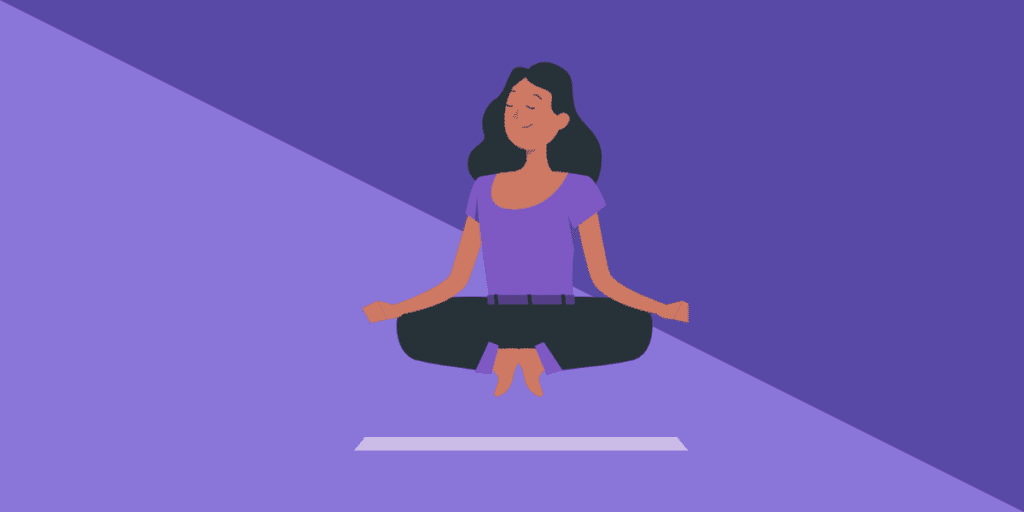
10 tips to manage & reduce exam anxiety
Now that we know a little bit more about the symptoms and consequences of anxiety, here are some of the best ways to manage and reduce it.
1. Follow a study plan
Creating a study plan is an important way to manage exam anxiety.
This can involve breaking down topics into achievable goals, setting aside specific times for studying and taking breaks in between, and scheduling regular review sessions.
A great study plan can help reduce the stress of having too much to do in a short period of time, and help you to manage your time more effectively, so it’s important to have one in place before exams begin.
By breaking down the material into smaller, manageable chunks, this ensures that all relevant material is covered, which means you feel less overwhelmed by the amount of information you need to absorb. You’re likely to feel a sense of accomplishment as you progress, which goes some way to making you feel like you’re more on top of your preparation.

2. Learn how to study efficiently
When studying for exams, it’s important to remember that not all study techniques are effective.
Try to maximize the study time you have available by not trying to do too much at once. For a lot of people, this means stopping or taking a break after about 45 minutes.
Trying to study for longer means that you might not be able to concentrate as effectively, reducing how efficiently you’re able to absorb new information or concepts. Methods such as the Pomodoro Technique advocate for even shorter bursts of focus, of around 20-30 minutes.
Effective studying and sticking to a good study plan can help to tackle one of the main causes of exam anxiety: being unprepared.
3. Practice relaxation techniques
Practicing relaxation techniques such as deep breathing, visualization exercises, and yoga can be helpful in managing exam anxiety.
These activities can help calm the mind and body while providing a sense of control over one’s thoughts and feelings during stressful times like exams.
Taking a few moments out of each day to practice relaxation techniques can make a big difference when it comes time to take the test.
Relaxation techniques can also be useful during an exam if you start to feel a little overwhelmed, or notice that you’re experiencing some of the symptoms of anxiety such as increased heart rate or an inability to recall information.
Mindfulness has been shown to have a positive impact on treating anxiety, and it’s something that you can incorporate into your life on a daily basis. Whether you practice your favorite technique such as meditation on breathing exercises, or even use one of the many apps that are now available to help guide your mindfulness journey; this can be a great way to limit the impact of anxiety before, during and after exams.
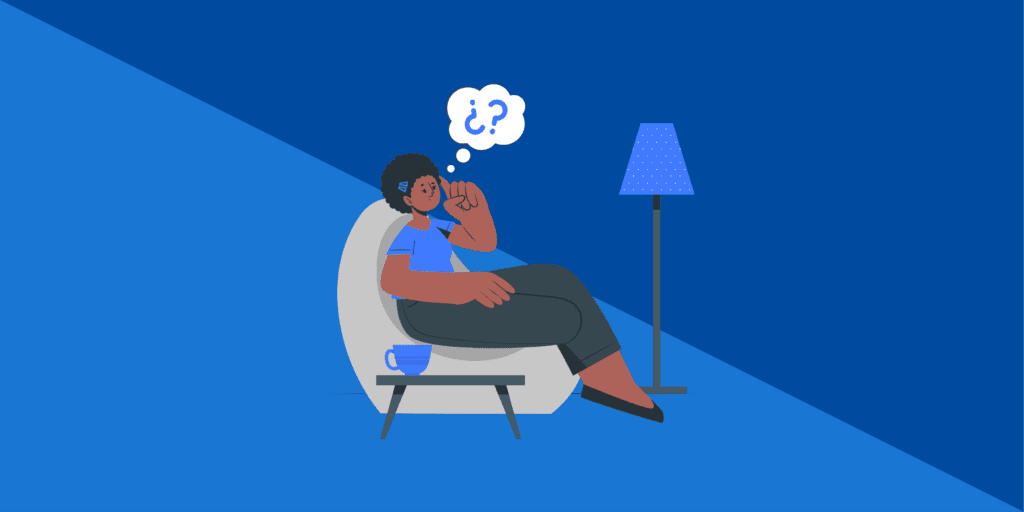
4. Remember the three Rs
Another great way to help manage anxiety is to give yourself the “Three R Pep Talk”. It goes a little something like this:
Ready: Know that by exam-time, your work is mostly done
Imagine you’re Usain Bolt in the Olympics 100m final.
Although how you run this race is important, 95% of how you’ll do in this race has been predetermined beforehand – the training, workouts, strategies, nutrition, discipline, preparing your body for this moment.
Similarly, by the time you’re actually about to take the exam, most of the work is done. You’ll have studied and prepared as much as you can up to this point, and no more. You are as ready as you can be.
Risk-management: Run through the worst-case scenario
Quite often, candidates don’t allow themselves to think of the worst-case scenario. But sometimes it helps. For example, if we consider a failure scenario:
- Ask yourself what’s your most likely, realistic response. Will you retake the exam, or not bother with it anymore?
- Maybe you’ll have to wait another year to take the exam. Assuming that happens, can you make that work with your plans for next year?
- Maybe you’ll have to spend more money to retake the exam. Have a quick count on exactly how much.
- If it’s important to you, have a think about the responses from your family, friends and colleagues. How is that likely to go, and how will you handle it?
Consider all the aspects above, and imagine that you’ve already failed, and you’re actually planning your next steps out.
Chances are, you’ll simply start thinking on how to move forward and make it work, and realize that it’s not necessarily that terrible.
Knowing that the worst-case scenario is planned, checked, and not scary will help stave off any future panicky thoughts.
Retake: Remember that (although not ideal) there’s always another chance.
Yes, failing is not great.
For CFA exams, you’ll have to wait for at least 6 months and incur a bit more cost in re-registering for the exam. But you do get to try again. As many times as you need.
Focus on that – you always have an ultimate safety net. It’s not your ideal situation, but at least you know you’ll always have the option to have another go.

5. Exercise
A simple way to help reduce anxiety about upcoming exams is to incorporate some exercise into your schedule. Exercise has been shown to have a positive impact on the effects of anxiety, as well as offering a range of additional health benefits.
Exercise releases endorphins, which are hormones that act as natural stress-relievers and mood-boosters. It also helps to reduce stress hormones like adrenaline and cortisol which can be responsible for some of the physical symptoms of anxiety.
While the act of doing exercise can itself be a mood lifter, the simple fact that you’re heading out for a run or visiting a gym also helps to distract from anxious thoughts, giving the mind a break from worrying about exams.
Additionally, exercise can impact other factors that can contribute to anxiety. It can improve sleep quality and duration; getting enough restful sleep is essential for reducing stress levels and improving concentration when studying for exams.
It also provides an opportunity to practice healthy coping strategies for managing stress, such as deep breathing or progressive muscle relaxation – both of which can be used during the exam itself to help manage feelings of anxiety.
You don’t need to be a professional level athlete to feel the benefits of exercise on your anxiety. A brisk walk or jog around your local park, for example, can be a great way to incorporate exercise into your routine. You could also try activities like swimming or strength training, or get involved with some team sports with your friends.
Whatever type of activity you prefer, the important thing is to make time in your schedule for some type of exercise. Even thirty minutes a day will be enough to help manage your anxiety, as well as contributing positively to your overall mental and physical health.
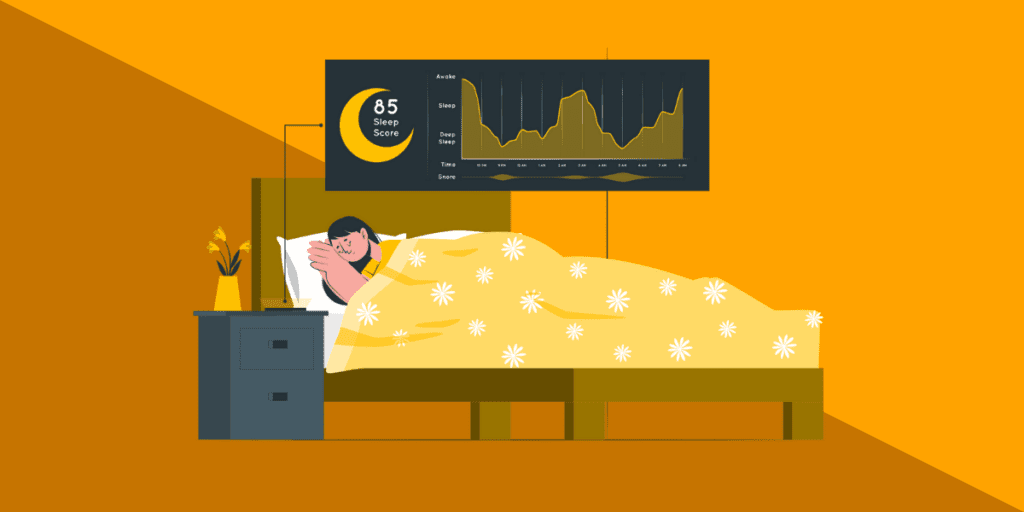
6. Get enough sleep
Most adults need about 7-8 hours sleep per night to feel their best. However, anxiety about things like upcoming exams can lead to sleep disruption. At the same time, not getting enough sleep can itself lead to increased levels of anxiety because it means the body releases increased levels of hormones like cortisol, which can cause some of the symptoms related to anxiety.
The problem here is two-fold; being anxious about exams means you might find it hard to get enough sleep, while not getting enough sleep can mean that you feel more anxious. It can be a vicious cycle.
In order to address this, first take some time to understand more about how sleep works and why it’s so essential.
It’s important to try and go to bed and wake up at the same time every day, including weekends. This helps your body to get into a natural rhythm and, once you’re in a routine, can make falling asleep easier.
While it’s tempting to stay up late cramming for exams, this can actually have a negative effect if it reduces the amount of sleep you’re getting.
It’s also important to switch off and give your mind time to relax before bed. Studying right up until bedtime means that your brain is focused on your study materials and your exams, which doesn’t help it to relax.
If possible, you should aim to close your study material an hour or two before bed; try listening to music, reading a book or taking a bath to help your mind separate study time from sleep time.
Aim to avoid caffeine a few hours before bed, and limit the use of screens like phones or computers.
Everyone has a bad night’s sleep from time to time, but the effects of anxiety can make it harder to drop off. However, it’s important to stick to your schedule and to give yourself enough time to relax. Keep persevering and eventually you’ll find that you’re getting more good quality sleep, which in turn might just help you to feel less anxious about your exams while you’re awake.

7. Improve your diet
If you find yourself dealing with ongoing anxiety about exams, then it might just be worth reviewing what you eat and drink.
Along with impacting a wide range of health factors, it is believed that diet can play an important role in our ability to cope with and manage anxiety. Diets that are particularly high in sugar or fatty foods can actually lead to increased levels of anxiety.
Some people find that when they’re feeling anxious or worried, they reach for a sweet treat like a candy or soda to help pick up their mood. However, the reality could be that these types of high sugar products will actually have the opposite effect.
This is particularly true for things like processed or added sugars, which can have quite a different impact on our bodies than naturally occurring sugars found in fruit, for example.
A well balanced diet that includes things like plenty of fruits and vegetables, lean meat, unrefined carbohydrates and healthy fats can help to reduce symptoms of anxiety. Try to avoid consuming too many things like processed foods, sugary drinks or foods high in unhealthy fats.
There are a range of natural brain foods that might be worth adding to your diet, particularly if you’re balancing studying for exams with work or looking after a family.
Other things to consider are your levels of alcohol and caffeine consumption, as these can also contribute to higher levels of anxiety in some people.
As well as what we eat, when we eat is important. Eating regularly ensures that we don’t get too hungry, which can cause drops in blood sugar leading to hypoglycemia. This has symptoms which are very similar to those of anxiety, and it can also amplify existing levels of anxiousness.
Making healthy food choices and ensuring your body is sufficiently fueled throughout the day is therefore a good way to help reduce any symptoms of anxiety that you may be experiencing.

8. Get help with your exam preparation
A lot of exam related anxiety comes simply from feeling that you aren’t adequately prepared to take the exam. This in turn links to other factors like a fear of failure, feeling overwhelmed, or feeling of self-doubt.
Depending on how you learn best, you might find that getting help with exam prep can be a great way to keep you on track, help you cover all the topics you need to know about, and to help tackle feelings of anxiety about future exams.
For qualifications like the CFA, there are a range of exam prep courses available from providers such as Kaplan Schweser and Salt Solutions, if you find the CFA curriculum too much.
Exam prep courses typically include detailed and fully comprehensive study notes that are presented in a clear and easy to digest format, access to online classes or courses that can be either live or on-demand, and plenty of practice and mock exams to help you identify areas where you need to improve the most.
In fact, when it comes to CFA exams, about 75% of candidates will use additional material from a third party provider to help them get ready. Consider it an investment in yourself to free up your time to actually focus on the one thing you can’t outsource – study and mindspace.
If you think that CFA, FRM or CAIA exam prep is something that you could benefit from, then head over to our offers page for access to exclusive discounts.

9. Maintain the right perspective
While exam anxiety can sometimes come about as a result of how much is at stake for passing, it’s important to maintain the right perspective on what this means in reality.
There aren’t many people who ace every exam they ever take. And while of course it’s natural to want to achieve the best results possible, it’s also important to remember that any setbacks or failures are all part of an individual’s professional journey.
A lot of the time, while they seem devastating at first, failures can actually help people improve further and become even more successful in the long term.
For professional exams like the CFA, failing to pass is by no means the end of the line. With a 12-year average CFA pass rate of 39% for level 1, 43% for level 2 and 50% for level 3, failing the exam is actually pretty common, and doing so would put you in the majority of candidates.
The CFA minimum passing score can also vary from one year to the next based on various factors, so it’s not necessarily fair to compare yourself to others who may have passed at different times.
It’s important to remember that if the worst happens and you do fail, there are some steps you can take to recover. One of these is to resit your exams if you think this is the right option for you. With qualifications like the CFA, it’s quite often the case that the syllabus doesn’t change too much from year to year.
So if you do decide you want to try again, then try to take a positive perspective that you’ve already got a great head start on your preparation for the next time you sit the test.
It’s also important to remember that exams are just one part of your overall academic or professional experience. Whether you pass or fail, and whether you re-sit or don’t, these exams do not define your whole life.
Try changing your perspective to focus on what you can control, such as preparing for the exam and looking after yourself, and you might find that it helps to manage any anxiety you have.

10. Talk to a professional
Anxiety is not uncommon, and in fact almost 20% of US adults suffer from some kind of anxiety disorder. There are a range of disorders which can be categorized as a type of anxiety, and feeling anxious about your exams could be an indication that you are suffering from one of these.
For example, generalized anxiety disorder (GAD) is usually a longer-term condition that results in people feeling anxious about a range of things, and not necessarily just a single event like an exam.
While it’s completely normal to feel anxious sometimes, if you think that you’re experiencing some of the symptoms of anxiety such as having difficulty concentrating, finding it difficult to fall asleep, feeling tired, irritable or restless, then it may be worth speaking to your doctor.
If you find that anxiety is impacting your daily life on an ongoing basis, or you’re experiencing things like panic attacks, there’s plenty of help available.
A doctor will be able to diagnose or refer you to a specialist if they think you may have an anxiety disorder, or offer help or treatment to help you manage your anxiety more effectively.

Focus on what you can control
Anxiety about exams is completely normal, and something that almost everyone experiences at some time in their life. After all, there could be a lot riding on the outcome, so of course you’ll want to succeed.
However, there are times when anxiety can become a problem. It can impact performance and actually lead to worse outcomes. Learning to recognize the symptoms of anxiety and take steps to reduce it is therefore crucial.
Thankfully, there are plenty of ways you can control your anxiety to stop it getting the better of you. Concentrate on being prepared for your exam and learn to study in a way that works for you.
There are also some great study prep courses available for most exams to help guide you.
Take care of yourself by eating healthily, exercising and getting enough sleep. Practicing mindfulness or other relaxation techniques are also great ways to reduce feelings of anxiety.
It’s also important to try and put things into perspective; often the worst that can happen is not actually as bad as you think.
A fear of failure sometimes means that we imagine not passing an exam will be far more terrible than it actually is; having a back up plan to follow should things not go your way, such as taking an exam again, can help to maintain a level of perspective and avoid anxiousness spiralling out of control.
If you utilize these methods then you may find that you start to feel less anxious about exams, as well as other things in your life.
We hope these tips will help you perform better on your exam day. But if you need more advice on calming exam-day nerves, or have tips of your own, let us know below!
Meanwhile, you may find these related articles of interest:
